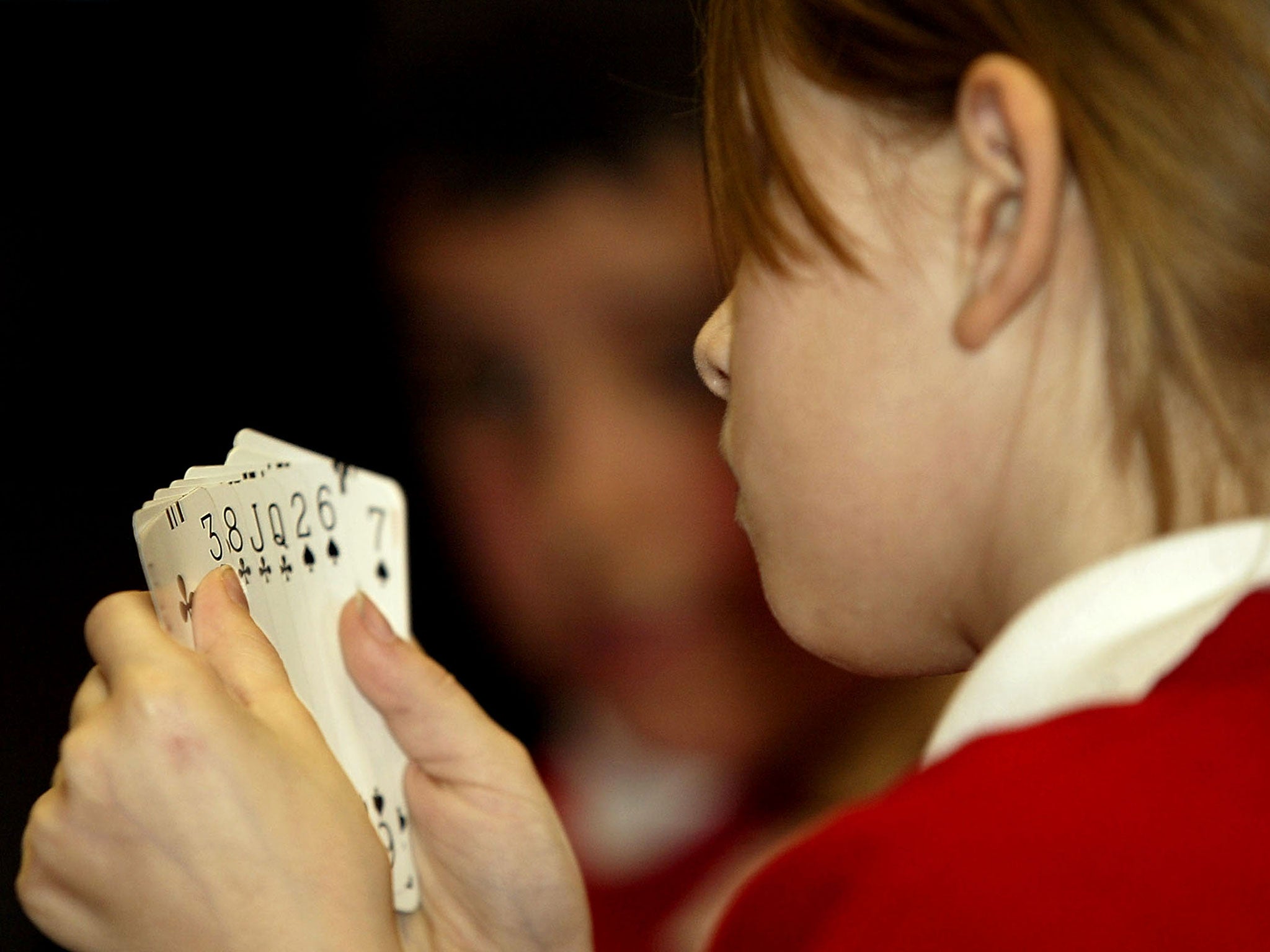How to un-glue your kids from their iPads and smartphones: buy them a pack of cards
Playing cards isn’t just a game, it’s a lesson in life

If there was one statistic that could tell you everything that has been going wrong with how we raise our children in this country recent years, I think I may have found it. If you want to know why British children are falling behind their peers in other countries in maths, have next to no social skills, are glued to their iPads and smartphones, and why their parents barely know anything about them except their names, then wonder no more. Here is the explanation: fewer than half of children aged between seven to 14 have ever played with a traditional 52-card pack of playing cards.
According to a survey of school-age children, only 44 per cent were familiar with a 52-card deck and had ever played traditional games such as snap, beggar my neighbour, or old maid. Ever, which means only a tiny number of them play cards on a regular basis.
Tragically, almost twice as many children and teenagers spend their time playing games on their mobile or tablet alone, the Opinium survey for Barclaycard found.
Mark my words, this is nothing short of a national tragedy and we will be paying the costs of losing the tradition of playing cards, which dates back nine centuries, for years to come. Playing cards isn’t just a game, it’s a lesson in life.
Some of my most vivid childhood memories involve cards: loud, energetic, often brutally competitive games of racing demon, played at high speed and in a fug of shouting and laughter; endless rummy tournaments; learning newfangled varieties of poker. It didn’t matter what the game was, if it involved a pack of cards, we played it. And as we played it, we learned more than simply how to win or lose with good grace and manners.
Card games are one of the best ways to teach basic maths skills. From adding up and multiplying to understanding probability, there is no better maths tool.
Then there are the thousands of references to cards in literature and music throughout the centuries, from Shakespeare’s greatest plays to Lewis Carroll’s Alice in Wonderland to Lady Gaga’s hit song “Poker Face”. How can you know how to “ace” something or what “to play your trump card” means if you’ve never played cards? And what on earth did people make of Diana being dubbed Britain’s “queen of hearts” if they had never picked up a deck containing one?
Playing card games differs from playing on gadgets in one crucial way: card games are a communal activity, a way for families to spend time together, patiently taking turns, and, yes, learning how to lose without having a tantrum (although I still know a few adults who could do with some extra lessons in that department).
So why are cards dying out? Let’s be honest, if mum and dad want to relax on a meal out, it’s much easier to hand over a gadget to their child and all sit in silence while they wait for their food than bother to interact with each other. I’ve watched time and again as, the moment a family sit down, children are handed their electronic gadget by their parents, ignored and left in their own sad little world.
A 52-card deck is a thousand different games and it’s cheap (unlike most computer games) small, light and portable. And, unlike electronic gadgets, card games don’t ever need recharging or run out of batteries – although in my personal experience they do occasionally need to be dried out after a rose wine soaking.
Playing cards crosses borders without any language barriers. I have played card games with Cambodian villagers, in bars in Cuba, on dive boats in the Indian Ocean and on safari in South Africa.
But the games I have enjoyed the most have been with my family – as a parent today and, many years ago, as a child myself.
So, as the summer holidays approach, if you want to enjoy your children – and you want your children to enjoy your company too – ditch the expensive gadgets and buy a plain old deck of cards. It is all you will ever need.
Join our commenting forum
Join thought-provoking conversations, follow other Independent readers and see their replies
Comments
Bookmark popover
Removed from bookmarks